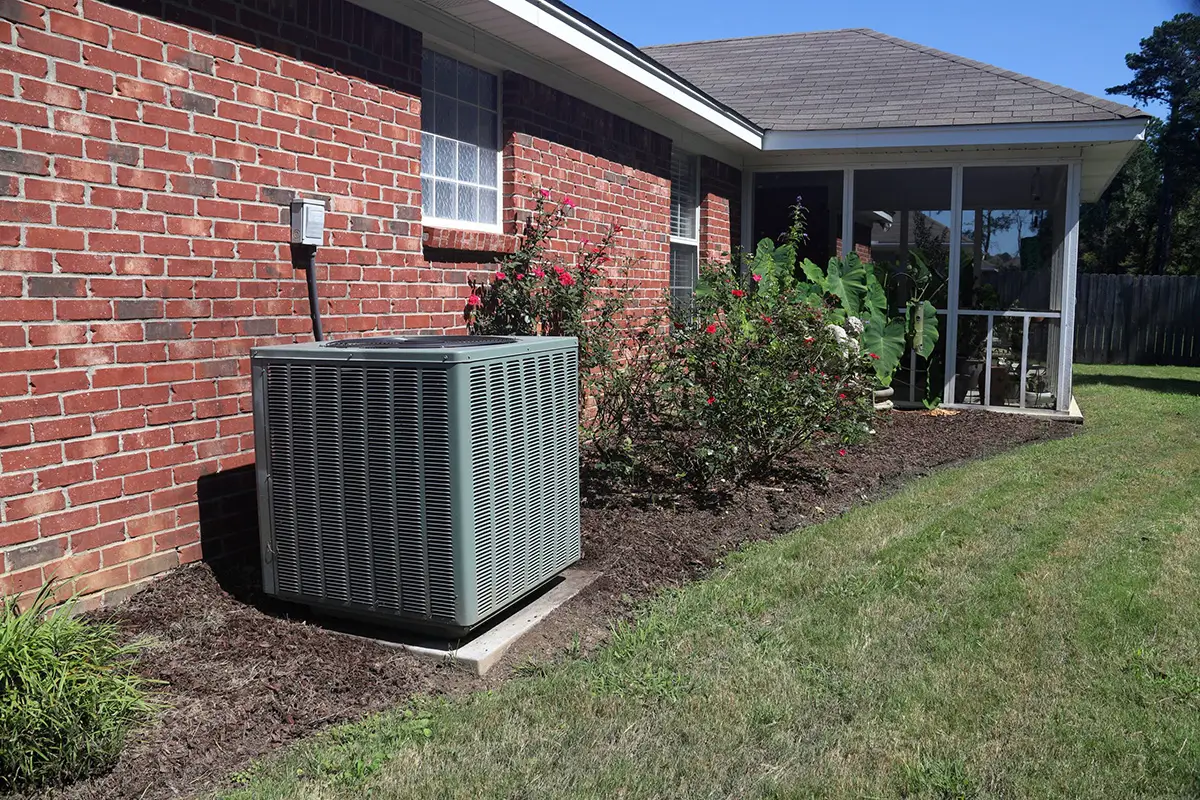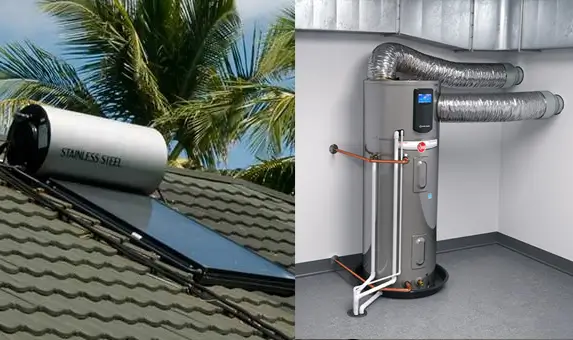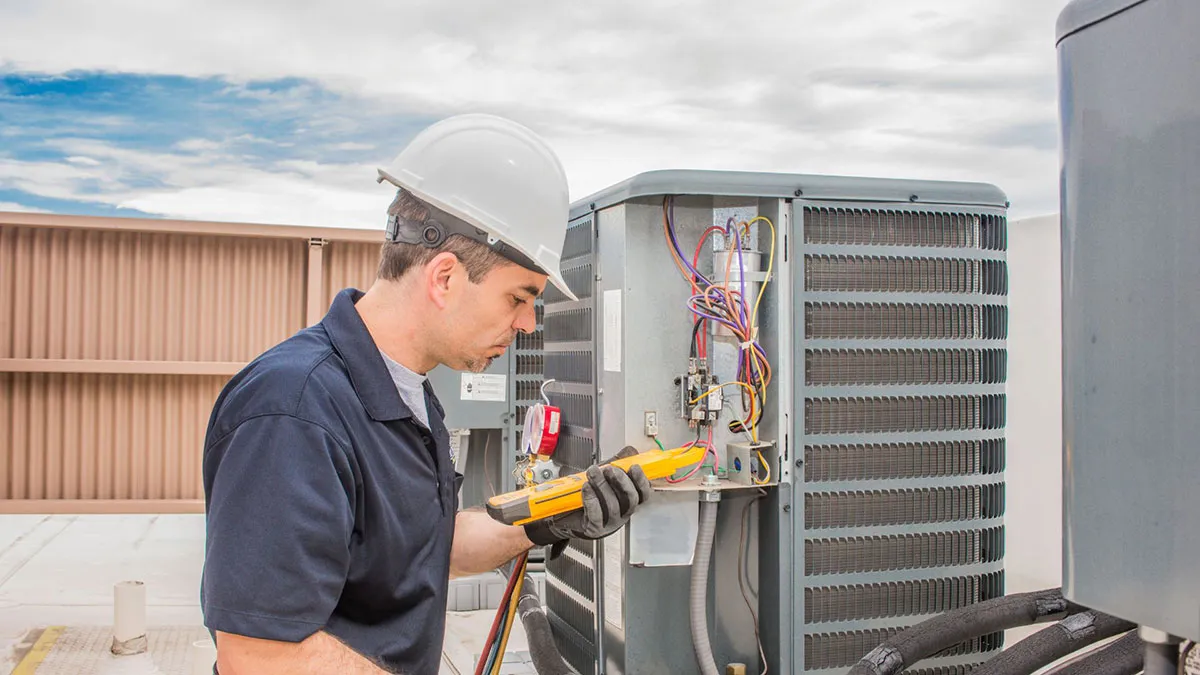There’s no bigger buzz-kill during Hawaii’s sweltering summer months than walking over to your air conditioning unit, pressing the “On” button, and…nothing. No cold air, no gentle hum of the compressor kicking in, just dead silence. That pit in your stomach tells you you’re in for a long, sticky night without any relief from the oppressive heat and humidity.
Before you completely lose your cool, take a deep breath. There are actually several common reasons why an AC unit may not turn on properly – some simple to fix yourself, others requiring a call to your trusty HVAC professional. Either way, the certified cooling experts at Steve’s Plumbing & AC are here to help you troubleshoot those AC no-start woes.
In this blog post, we’ll walk through some of the typical culprits that could be preventing your air conditioner from firing up and cooling down your home. We’ll also offer some basic DIY tips to try, as well as advice on when it’s time to wave the white flag and get Steve’s highly trained AC techs on the case.
There’s nothing worse than an AC system going AWOL in the middle of a Maui summer heatwave. But with the right knowledge and a little proactive maintenance, you can hopefully catch AC issues early and get that refreshing cool air flowing again quickly. Let’s dig in!
Typical Culprits When Your AC Doesn’t Turn On
So your air conditioning system is pulling a no-show when you try powering it up. Before you fret about hiring an expensive AC repair technician, let’s run through some of the most common reasons this might be happening. With a little troubleshooting, you may be able to get that cool air flowing again all by yourself!
Tripped Circuit Breaker
This is always smart to check first if your air conditioner is pulling a no-show. AC units draw a lot of power, so if too much current overloaded the system, the electrical circuit breaker may have tripped as a safety precaution. Go take a look at your home’s breaker box – is the switch for your AC unit showing tripped to the neutral or “off” position instead of being fully in the “on” position?
If so, you can try resetting it by flipping the breaker fully off and then back to the “on” position again. Keep in mind if it continues tripping, there may be a more serious electrical issue that requires an HVAC tech’s expertise.
Faulty Thermostat
That climate control brain telling your entire AC system when to turn on and off could easily be the root of no-start troubles. Maybe it’s suffered impact damage, gone haywire due to dust buildup, has dead batteries if it’s a smart model, got disconnected, or is suffering an internal short-circuit.
First, try gently wiping away any dust and debris on the thermostat, change the batteries if applicable, reconnect any loose wires, and see if that solves things. If not, and your existing thermostat is pretty old and outdated, a full replacement may be in order.
Blown Fuse
Similar to a tripped circuit breaker, if the fuses designed to protect your AC system have blown due to power surges or overdrawing current, you’ll get a big fat zero when you try powering up the unit. Head out to where your indoor air handler unit is located and carefully inspect and test the fuses. Any that are blown, discolored, or show visible damage should be replaced according to your AC model’s specifications on fuse type and amp rating. Just make sure to shut off power to the unit entirely first before accessing fuse compartments!
Clogged Air Filter
When airflow gets restricted due to a clogged, dirty air filter, your AC’s built-in safety controls may automatically disable the whole system to prevent it from overheating, freezing up, or otherwise damaging itself. Do a quick visual inspection of your indoor air handler’s filter – is it thickly coated with dust and grime built up over months and months of neglect? Filters should be cleaned or swapped out for fresh ones regularly to keep air flowing freely. For fiberglass filters, hosing them off outside and letting them fully dry should do the trick unless replacement is needed.
Low Refrigerant Levels
AC units rely on being properly filled and charged with refrigerant to facilitate their cooling cycles and produce refreshing cold air. But if your system has sprung a leak, refrigerant levels can steadily drop until they’re too low for the compressor and coils to effectively chill things.
At that point, the whole system will disable itself from even trying to start up. Only certified HVAC professionals should handle inspecting refrigerant levels and safely recharging systems that have sprung a leak to prevent further environmental damage. So if low refrigerant is suspected, it’s time to call in the pros!
Faulty Capacitors
You know those big battery-looking components rocking cylindrical tops? Those are your AC’s all-important capacitors, providing that zap of electrical energy needed to get the motors spinning and cooling cycles churning. If those capacitors have gone bad, weakened over many years of use, or outright failed, that much-needed surge of power never arrives when you hit the “on” button.
The fix is usually as simple as replacing those old, faulty capacitors with new ones, which any AC repair tech can easily handle. But what causes capacitors to conk out? Often it’s electrical spikes and surges, excessive motor load, and simple age.
Condensate Drain Clog
Air conditioners naturally produce condensation during their cooling cycles, which gets shunted off through a drain line to the outdoors or a floor drain. But that drain line is a prime target for sludgy buildups of algae, mold, dirt, and the dreaded dryer lint if it vents too close.
When that condensate drain gets clogged, the resulting moisture backup can trigger a safety switch that disables your whole AC system from turning on to prevent water damage.
Periodic inspections and clearing out any gunk in that drain line should be part of regular AC maintenance. If caught early, you may just need to flush things out with a wet/dry vac. But recurring drain clogs point to a more stubborn blockage that requires professional snaking or a plumber’s expertise.
Wiring Issues
Do you know what powers all those hardworking air conditioning components like the blower motor and compressor? Yep, good old electrical wiring running throughout the system. Whether it’s loose wiring connections causing poor contacts, burnt/melted wiring from power surges, or critters chewing through wires, any disruptions to your AC’s electrical circuits can obviously prevent the whole system from powering up properly.
Inspection and repairs here require the skilled hand of an HVAC pro who can safely access all areas of the system, from the internal components behind panels to outdoor condenser unit hookups.
Damaged Compressor
That large, heavy-duty component in your AC’s condensing unit outside is the heart keeping the cool blood pumping throughout your home. It’s responsible for circulating the all-important refrigerant that removes heat and moisture. If the compressor fails completely due to age, electrical shortages, slugging from liquid refrigerant, or any other mishap, the whole system simply will not be able to turn on and get any kind of cooling cycle churning. Compressor replacements tend to be very pricey repairs, so at that point, an older system may be better off retired in favor of a full installation.
Outdoor Unit Power Issues
Speaking of that hulking condensing unit parked outside, any electrical issues preventing it from powering up creates a no-go for the whole AC system. First, check to ensure the unit is receiving power by inspecting the shutoff box or disconnect switch placed nearby. Loose connections, damage from pests, electrical faults from storms, or the switch being inadvertently shut off can all disrupt power flow.
If disconnected, be super careful as these units use high voltages! Call a pro to re-establish safe connections. If power is reaching the unit but it still won’t fire up, there may be internal electrical or component failures requiring a technician’s skilled repairs.
So in summary, there are quite a few potential culprits that could be causing an air conditioning no-start situation. Tackling some of the easier DIY checks and maintenance may solve the problem. But for larger electrical or system faults, it’s always best to call in the trustworthy AC pros at Steve’s Plumbing & AC Service. We’ll get you and your home back to blessed cooling comfort in no time!
When To Call the Pros
You’ve given it your best effort to troubleshoot your air conditioning unit refusing to cooperate. You’ve checked the filter, breakers, capacitors – you even braved taking a look at that condensate drain line. But despite your valiant amateur detective work and attempted DIY fixes, the cooling system still won’t restart.
At a certain point, continually struggling against an AC issue with no clear solution in sight just becomes an exercise in frustration. Sometimes, as much as you hate to admit it, you’ve just got to know when to hang up the toolbelt and call for professional HVAC reinforcements. Here are some scenarios where it makes sense to save yourself more headaches and ring up a certified tech:
- That AC unit is getting up there in years, passing that 10-year mark or older. As systems age, internal parts become more prone to failing – those repair bills can get expensive if replacement is inevitable soon anyway.
- You suspect there might be a refrigerant leak somewhere in those coils or lines. Any refrigerant work is best left to EPA-certified pros to avoid safety and environmental risks.
- The outside condenser unit’s exterior is looking a bit rough – maybe some weather dents and dings, or signs that critters have been nesting and chewing through wires/tubing.
- Your sleuthing can’t pinpoint a definite cause, but electrical problems are suspected. Wiring issues require proper HVAC training to troubleshoot and repair safely.
- You feel like you’ve tried every DIY trick in the book at this point, yet that aggravating AC problem persists without a solution. When all DIY options are exhausted, it’s wisdom time.
- Abnormal grinding and screeching sounds are coming from the compressor unit when trying to fire it up. Those are typically indicators of serious internal damage.
- Any signs of water leaking or moisture buildup around the indoor air handler or other components. That’s a scenario best not touched by amateurs to avoid further issues.
The certified cooling professionals at Steve’s have decades of experience rapidly diagnosing and resolving all manner of AC quirks and breakdowns. We know the specialized tools and methods to properly uncover root causes and repair systems. Or we can guide you through replacement if something more serious is going on.
Don’t let AC troubles and Hawaii’s sweltering heat get you feeling like a melted mess of frustration. When the DIY route leads to a dead end, hang tough and give Steve’s HVAC experts a call! We’ll have you back to blessed cooling comfort again soon.
Preventative AC Maintenance
We’ve all been there – it’s the peak of summer, temperatures are soaring, and you come home after a long day only to be blasted by a wall of hot, stale air. Uh oh…something’s clearly amiss with your air conditioning system. As you frantically try turning it off and back on while reciting any heat-related mantras you know, visions of astronomical repair bills start dancing in your head.
But what if you could avoid most of those AC headaches and unexpected failures in the first place? Preventative maintenance is the key to keeping your cooling system running strong and efficiently for years to come. A little proactive TLC goes a long way!
At Steve’s Plumbing & AC Service, we can’t stress enough the importance of getting your air conditioner professionally tuned up once a year. During these routine maintenance visits, our certified technicians go through a whole checklist of inspections and services, including:
- Removing built-up gunk and clearing any obstructions from condenser and evaporator coils
- Checking and topping off refrigerant levels to prevent leaks or loss of cooling ability
- Lubricating any moving parts and tightening electrical connections
- Testing and calibrating thermostats and control systems
- Cleaning and adjusting blower components for proper airflow
- Inspecting for any worn-out parts that should be replaced proactively
- Checking for air leaks, drainage issues, or any other potential problems
Think of it like an annual physical for your AC system – a thorough nose-to-tail exam to verify everything is working properly and catch any small issues before they escalate into bigger, costlier emergencies. Neglecting that yearly tune-up is just asking for troubles to steadily develop.
Our professional preventative maintenance program not only helps reduce your costs by avoiding unexpected repairs. It also optimizes your air conditioner’s energy efficiency so you stay cool without being blindsided by sky-high utility bills. An AC system operating at peak performance is simply going to run more economically.
Don’t get caught sweating when AC failures hit! Stay ahead of cooling catastrophes and harsh Hawaiian summers by enrolling in Steve’s preventative maintenance program today. A simple, affordable tune-up beats wrestling with a broken down AC unit any day!
Keep Your Cool with Steve’s AC Repair Experts
There’s no bigger buzz-kill than trying to escape Hawaii’s sweltering summer heat only to find your home’s air conditioning system pulling a no-show. As maddening as AC issues can be, they happen to the best of us. And unfortunately, many cooling catastrophes are out of the amateur’s hands to fix.
That’s where the certified cooling professionals at Steve’s Plumbing & AC Service come in! We’ve been keeping islanders comfortably chilled for over 35 years through our top-notch AC repair and installation services. Our technicians are equipped with the training, tools, and expertise to quickly identify the root causes behind any air conditioning woes.
From electrical gremlins and thermostat problems to failed components and low refrigerant levels, Steve’s has seen and solved it all. We always aim to repair systems properly to restore reliable, efficient cooling. But if your AC unit is on its last legs, we’ll guide you through affordable replacement options perfectly sized for your home.
Don’t waste another day fruitlessly battling a broken AC unit or sweltering without relief. Stay cool and call Steve’s at (808) 563-4054 for prompt service! We’ll have one of our trustworthy HVAC technicians dispatched to diagnose and remedy the issue, so you can get back to blissful, refreshing air conditioning ASAP.









